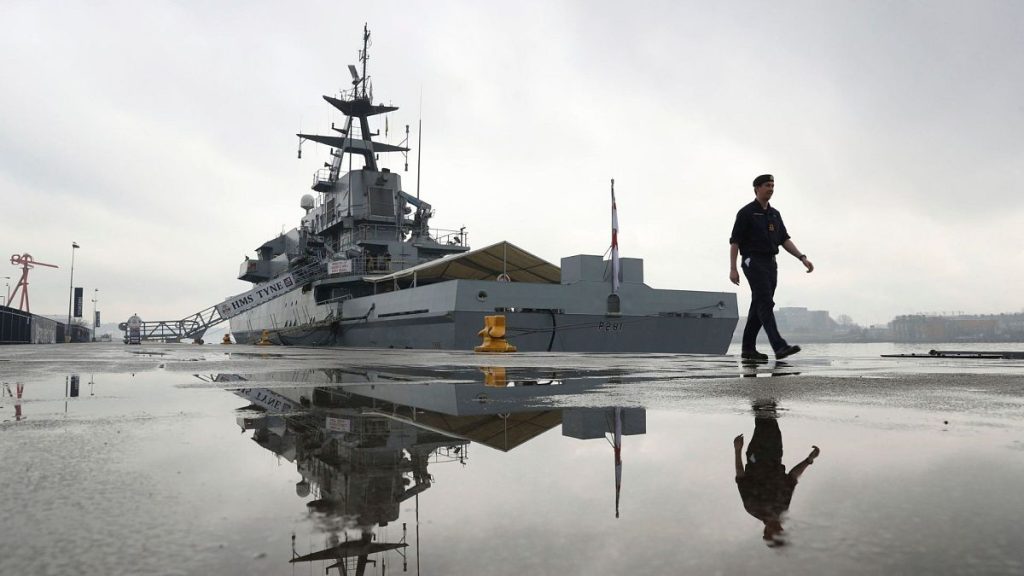The British Royal Navy’s recent tracking of the Russian vessel Yantar in the English Channel underscores growing concerns about the security of critical undersea infrastructure and escalating tensions between the West and Russia. The Yantar, identified by UK Defence Secretary John Healey as a “Russian spy ship,” is suspected of mapping undersea cables crucial for communication, energy, and data transmission. This incident, the second such incursion by the Yantar in three months, prompted the deployment of two Royal Navy ships to monitor the vessel until it exited UK waters. Healey characterized the Yantar’s actions as part of a broader pattern of “growing Russian aggression,” specifically highlighting Moscow’s alleged attempts to threaten Europe by targeting these vital undersea lifelines. The incident also highlights the increasing strategic importance of undersea cables and the vulnerability they represent in the context of geopolitical tensions.
The Yantar’s presence in the English Channel, coupled with similar activities in other European waters, particularly the Baltic Sea, raises alarms about potential sabotage and disruption of essential services. These concerns are not unfounded, given the recent damage to several undersea cables in the Baltic Sea region since the onset of the full-scale Russo-Ukrainian war. The most recent incident involved damage to a power cable connecting Finland and Estonia, an event that prompted an investigation by Finnish authorities and drew suspicion towards the involvement of a Russian vessel operating within what is often termed Russia’s “shadow fleet.” This “shadow fleet” refers to vessels often operating without clear identification or affiliation, allowing for a degree of plausible deniability in sensitive operations. The repeated presence of the Yantar and other similar vessels near critical infrastructure fuels speculation about Russia’s intentions and its potential willingness to disrupt essential services as a form of geopolitical leverage.
The heightened awareness of potential threats to undersea infrastructure has spurred both national and international responses. The UK’s robust monitoring of the Yantar demonstrates a commitment to safeguarding its critical assets and sending a clear message of deterrence to Russia. Statements by Defence Secretary Healey, including the pointed remark, “We see you. We know what you are doing. And we will not shy away from robust action to protect this country,” underscore the UK’s resolve to counter perceived Russian aggression in its waters. The Kremlin’s response, characterized by a lack of specific acknowledgment or denial, further contributes to the atmosphere of suspicion and uncertainty surrounding these incidents. The lack of clear communication from the Russian side only exacerbates concerns and fuels speculation about the true nature of these maritime activities.
The broader implications of these incidents extend beyond bilateral relations between the UK and Russia. The vulnerability of undersea cables highlights a shared concern for many European nations, prompting increased vigilance and cooperative efforts to protect critical infrastructure. NATO’s recent launch of the “Baltic Sentry” mission exemplifies this growing awareness and the commitment to enhanced surveillance and protection of undersea assets. While NATO Secretary General Mark Rutte stopped short of directly accusing Russia of the cable damage incidents, the increased monitoring of the Russian “shadow fleet” signals a clear recognition of the potential threat emanating from these activities. The incidents underscore the interconnectedness of European security and the need for collective action to address emerging threats in the maritime domain.
The ongoing tensions surrounding undersea cable security reflect a broader geopolitical dynamic characterized by increasing mistrust and strategic competition between Russia and the West. Russia’s alleged use of its “shadow fleet” to probe and potentially disrupt vital infrastructure represents a new dimension in this complex relationship. It raises questions about the boundaries of acceptable behavior in international waters and the potential for escalation in the event of a confirmed act of sabotage. The ambiguity surrounding these incidents, coupled with the Kremlin’s reticence to provide clear explanations, further complicates the situation and fuels a climate of suspicion. This dynamic underscores the challenges of maintaining stability and communication in a period of heightened geopolitical tension.
The incidents involving the Yantar and other suspected Russian maritime activities highlight the increasing strategic importance of undersea infrastructure and the need for enhanced security measures to protect these vital assets. The ambiguous nature of these activities, combined with the lack of clear communication from the Russian side, contributes to a climate of uncertainty and mistrust. The heightened awareness of these potential threats has prompted both national and international responses, including increased surveillance and the development of strategies to protect critical undersea infrastructure. These incidents underscore the complex interplay of geopolitical tensions, technological vulnerability, and the need for international cooperation to safeguard essential services in an increasingly interconnected world. The continued monitoring of these activities and open channels of communication will be crucial to managing these tensions and preventing escalation.














